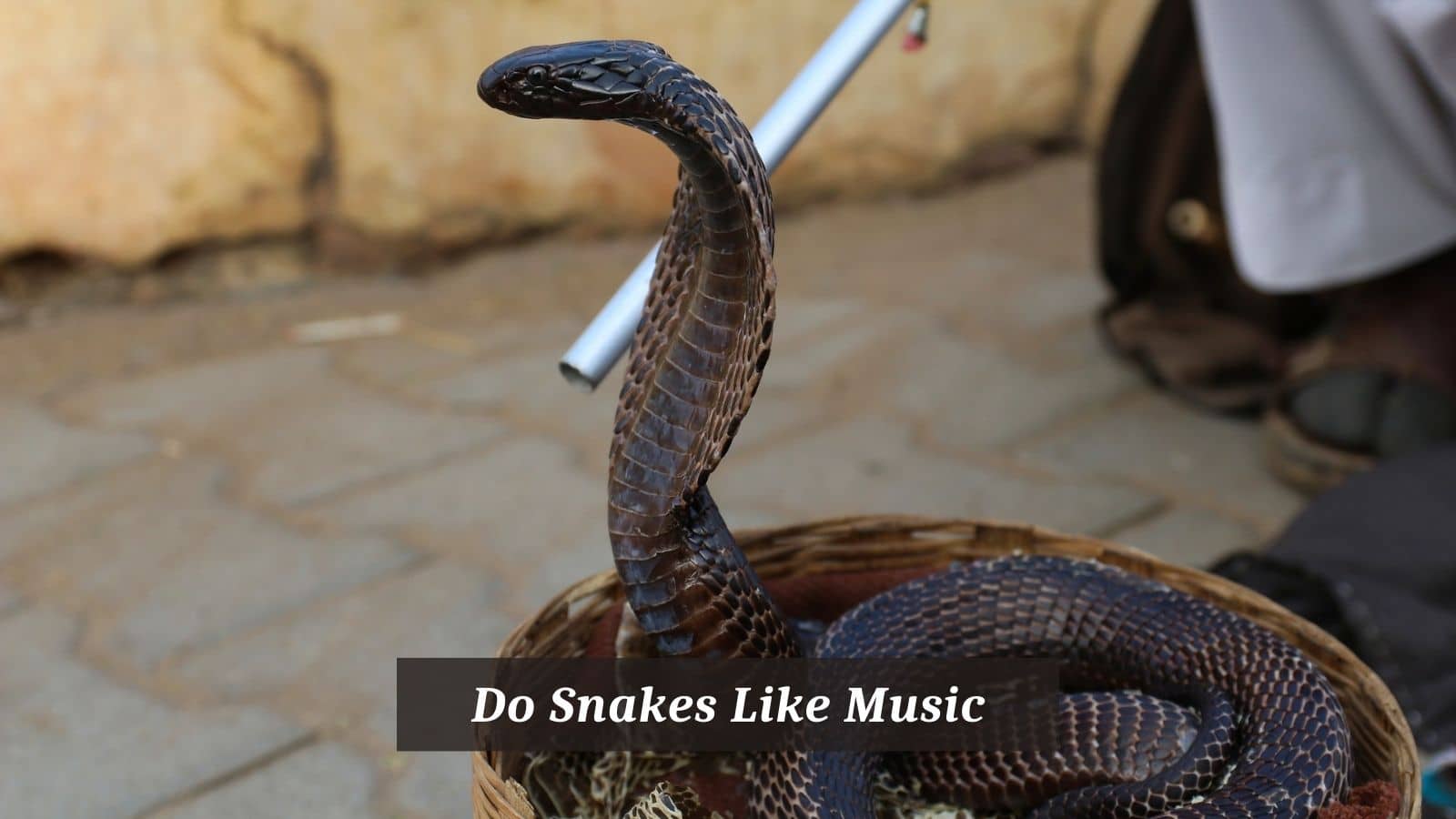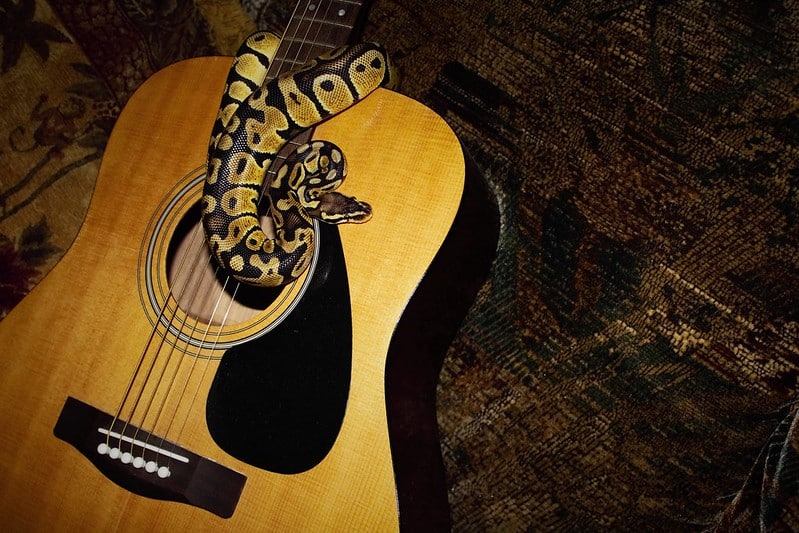
It’s easy to understand why snakes aren’t the most beloved animals in the world. They’re scaley, cold, and scary.
But have you ever stopped to wonder if snakes like music? Some claim snakes can hear music, while others don’t. So, we’ll investigate to see if snakes enjoy music.
Can Snakes Hear?
Snakes do not have visible external ears, which means they don’t have the ability to hear sound the way we humans or other animals do. Instead, snakes only have an inner ear linked to the jawbone by a middle ear bone called the columella auris—a small rod-like bone.
Scientists on both sides of the spectrum are debating whether snakes can hear external sounds, and evidence is mounting on both sides of the argument.
Although snakes cannot hear as we do, they can sense vibrations on the surface. Scientists have found that snakes can detect vibrations up to 100 feet (30 meters) on the ground.
This ability enables them to pinpoint the sound’s epicenter (origin) to catch prey when hunting or seeking a mate. Snakes can also detect vibrations through the sand; when prey moves, they can ‘see’ the vibration rippling through the surface.
What About Snake Charming?
Many of us have probably seen a snake charmer playing music to a snake rising as if it is hypnotized by the music—in cartoons or even movies. It may seem like snakes are reacting to the player’s music, but the snake is not.
They don’t have external ears, remember? So instead, the snake follows the charmer’s pungi, a reed instrument carved from a gourd with a flute attached to its end. Unfortunately, the snake thinks the pungi is a threat and rises in a defensive pose to attack the ‘intruder.’
You can watch this video about snake charmers (the video may be disturbing to sensitive viewers, proceed with caution).
Because the snake cannot hear the instrument’s music, it follows the charmer’s instrument as it sways from side to side, making it look like it is ‘enjoying’ or ‘listening.’ Some people depend on their abilities to charm the snakes with their instruments.
Still, there is a darker side to these performances as well. Typically, cobras are used for snake charming because they are aggressive and will even attack other snakes.
Cobras are also known to be deadly, and this adds to the allure of the snake charmer’s ability to ‘control’ the snake.
Authorities in India have declared snake charming illegal and have confiscated snakes and fined charmers. They’ve even seized snakes from villages to stop this practice, but it continues.
You might think this is an insensitive action on the government’s part, but have you wondered what happens to the snakes? Snakes are caught in the wild and submitted to their handler’s whims.
Some handlers sow their snake’s mouth shut, remove its venomous fangs without painkillers, and even remove the venom glands to ensure the snake cannot kill them (source).
As much as we love music, we also love all animals. Mutating snakes like this for human entertainment is a cruel practice that should be banned worldwide.
Do snakes like music?
No empirical or scientific evidence suggests snakes react to or even like music. Their hearing and brains aren’t developed to respond to or enjoy music. So, playing loud music won’t attract or repel snakes.
While snakes aren’t known for their acute hearing or eyesight, they can detect surface vibrations and some in the air.
Even though snakes aren’t known to react to music, loud music with low frequencies or bass lines can affect them negatively. They rely on their sense of hearing-feeling to find food, orient themselves in their environment, and find mates.
When the vibration from loud music becomes too much for them to bear, they can suffer health problems. Additionally, the loud music’s vibration can cause snakes to become stressed, leading to anxiety.
In some instances, scientists have found that snakes respond to jazz music. In contrast, others prefer classical music or even rock music. This ‘response’ to the music may be because the snake is trying to cope with its boredom while in captivity.
So, it will ‘react’ to the music by moving faster or slower, or in a certain way. The key to playing music—whether for your snake or only yourself—is to keep the volume low so that you do not cause your snake to become too stressed or anxious.
Another tip you can try is to place the cage on top of a folded towel to absorb the sound vibrations traveling through the walls and floor and finally into your snake’s house/cage/terrarium.
Although your snake cannot communicate about its stress, you’ll have to pay close attention to them. Your snake may suddenly start eating more frequently or consume less food, and their excretions can become more frequent or lessen.
Their shedding schedule may change as well. You could try a different type of music and see if the vibrations calm your snake down (or not). But please, your pet snake is not a science experiment, and do not bombard it with all kinds of music with heavy bass lines and the like.
Conclusion
Snakes cannot hear or listen to music like we do because they do not have external ears. Instead, they pick up vibrations in the ground through their bodies, which are relayed to the brain. Furthermore, their brains are not large enough to analyze sounds like ours do.
Any sound vibration a snake might pick up is purely geared toward hunting prey, finding a mate, and keeping them out of harm’s way. When people mention snake charmers with their cobras, remember snakes do not have good eyesight either.
They follow the charmer’s flute to strike when the perceived ‘threat’ or ‘prey’ moves to counteract or catch it. Some people have observed that their pet snakes react to certain types of music, but this might be because the snake is bored and interacting with its surroundings, or they genuinely like your music.


